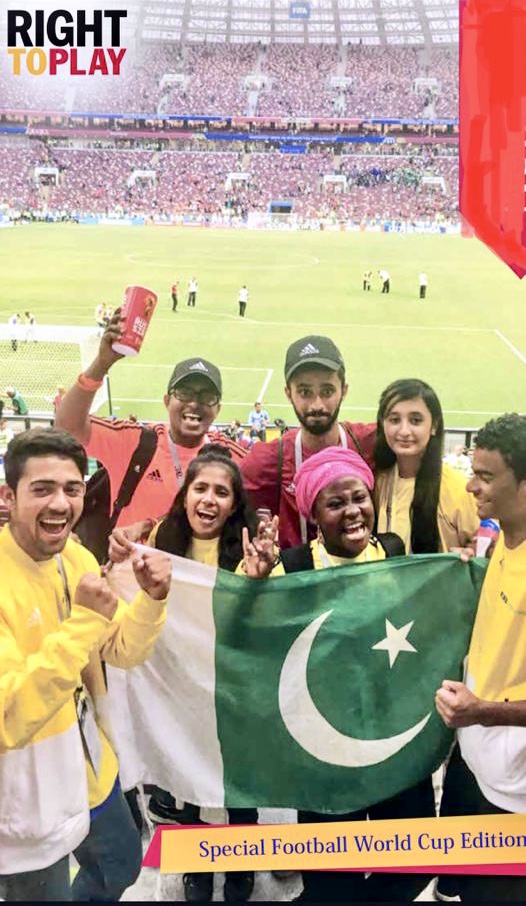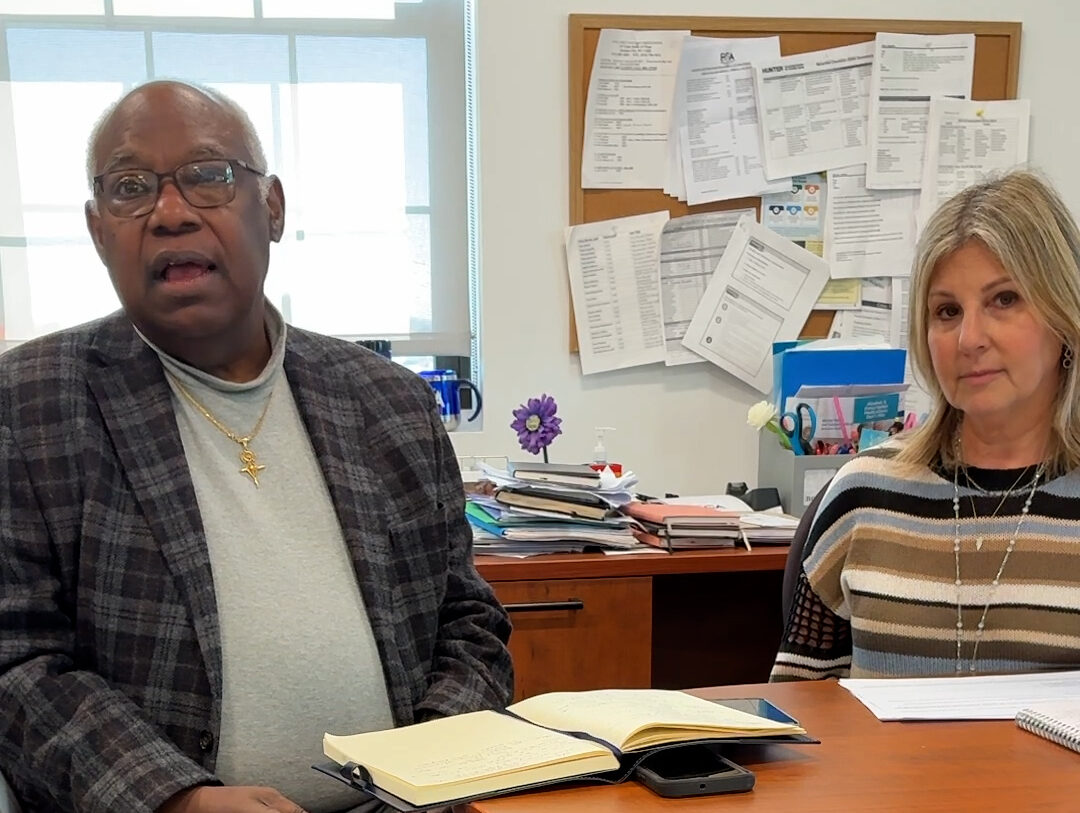Kanwal Gulshan , a resident of the Maria Aku slum in Islamabad, made history as a student by going from a tent city to participating in the Women’s World Cup. Now she is making history again, as a teacher.
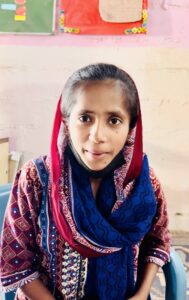
Gulshan hopeful to become the best Coach for her Students in future. [Credit: Neelum Nawab]
“When I was 14, the first ever Coach came to our school from “Right to Play” and she taught us girls to play football. I didn’t know about what football was other than watching it on TV occasionally” said the thin framed Gulshan about her journey from the slums to the biggest event in women’s soccer.
Pakistan lacks the national structure to develop female athletes. The challenges are enormous when it comes to sports especially in the slums in the form of personal, practical and social barriers.
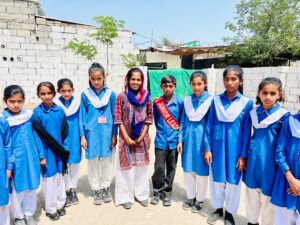
Gulshan with her sports students in the Tent school. [Credit: Neelum Nawab]
“Girls in Pakistan face many difficulties, cultural barriers including restriction to education and pursuing sports ,” Gulshan explains.” As a result most girls are not given the opportunity to pursue sports.”
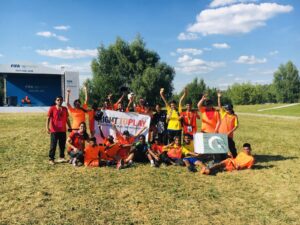
Gulshan at FIFA2018 Football in Russia.
The IOC’s Olympic Charter recognizes the “practice of sport as a human right”. The right to rest, leisure and recreational activity are recognized under the Universal Declaration of Human Rights and Convention on the Rights of the Child as basic human rights that are essential for a holistic education and full development of the human personality.
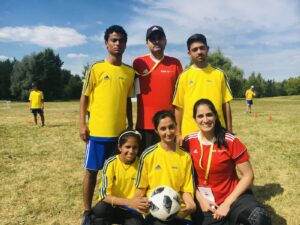
Gulshan at FIFA 2018 Football in Russia.
Articles 10 and 13 of the Convention on the Elimination of Discrimination Against Women mandate that all state signatories ensure equal opportunities for women to participate in sports and physical education. Pakistan has ratified these international conventions.
The perception of women in sport in Pakistan is changing gradually. Female role models in sports are not hard to find these days. Maria Toorpakai Wazir, the squash legend from Waziristan, awarded the Salam award; Sana Mir, the former captain of the women’s cricket team who topped ICC rankings for international women bowlers; footballer Abiha Haider who was recently listed amongst the ‘30 Most Powerful Muslim Women in Sport’ are a few of many examples.
Gulshan said enthusiastically ,“when I used to play as a student, I would tell myself that when I become a coach I’ll teach my students to play their best”.
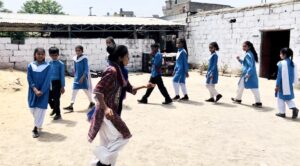
Gulshan as a coach to her students during PE at Tent School. [Credit: Neelum Nawab]
